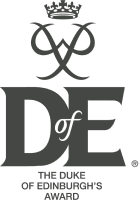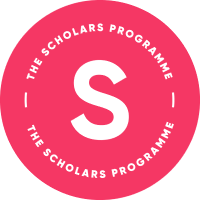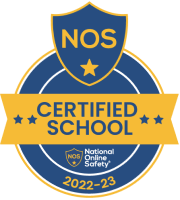Spiritual, Moral, Social and Cultural Development and British Values
The faculty of Mathematics, Enterprise and Computing at QEHS supports the development of SMSC in the education of its students not only through specific topics in the curriculum but also how we teach and how we conduct ourselves as professionals. The development of critical thinking skills enable students to analyse, evaluate and reflect upon their solutions – encouraging a positive mind-set is essential when learning to cope with new concepts and/or difficult problems in order to develop perseverance in our students
Spiritual Development
Developing a logical approach and the ability to recall and reason, along with questioning the way in which the world works promotes the spiritual growth of our students. In lessons, pupils are always encouraged to delve deeper into their understanding of the topic being covered and how it relates and can be used to explain the world around them.
We aim to be enthusiastic about our subjects and to use a range of teaching strategies that allow pupils to be creative (i.e. tessellating shapes) or imaginative (i.e. designing exam questions) whilst offering opportunities for students to working through the “don’t get it” moments and experience the satisfaction of that “eureka” when an idea is understood.
We attempt to fulfil spiritual awareness by:
- Explaining naturally occurring patterns/sequences or symmetry such as is seen in a snowflake, or the seeds in a sunflower.
- Considering the concept of infinity (and beyond), the golden ratio and pi to convey the “beauty in the Maths”.
- Discussing the influence and limitations that computers can bring to an individual’s beliefs.
- Pupils considering charities that are important to them and what their foundations are, hence developing an understanding about how they can best help others and what things they are passionate about.
Moral Development
Enforcing the basis behind good decision making, we look to promote sound judgment through a range of means which allow pupils to find the correct path through self-exploration. The moral development of pupils is evident in much of the curriculum where problems are presented in real life contexts and the students are able to apply the skills required to solve various problems and understand how decisions are made dependent upon the outcomes of the problem. Through these scenarios, students understand that certain choices may have different consequences and outcomes.
Examples of topics used for moral development are:
- When looking at percentages, more specifically in comparing rates of interest on borrowing money where the role of “loan sharks” could be explored and discussed.
- Investigate ways in which ICT can be used to monitor individuals’ movements and communications.
- Pupils consider what makes ethical business.
Social Development
In all areas of the faculty problem solving skills are fundamental, which require students to work individually, as part of a team or pair when required. Students are encouraged to communicate clearly when discussing, explaining and presenting ideas, through which they are able to develop their reasoning skills, whilst showing their peers respect by listening carefully.
Developing self-awareness and the ability to support other students allows effective use of self and peer reviewing, which enables students to have an accurate understanding of their strengths and weaknesses.
In their computing lessons students are prepared for living and learning in a technologically rich world and how technology establishes boundaries in society by considering what is acceptable.
Cultural Development
Mathematics is the universal language of the world and we aim to develop a realization that many topics we learn today have travelled across the world and are used internationally. Through enterprise students develop cultural understanding through raising awareness of different charities and where they work from around the world. Students discuss how cultures reflect audience perception of various images and cultural norms during computing.
British Values
All areas of the faculty promotes the British values of democracy, individual liberty, tolerance, rules and laws and mutual respect on a daily basis through problem solving and understanding of complex concepts, encouraging students to persevere and try different methods to arrive at a correct/acceptable solution. Students are encouraged to build on and learn from their mistakes in lessons.






